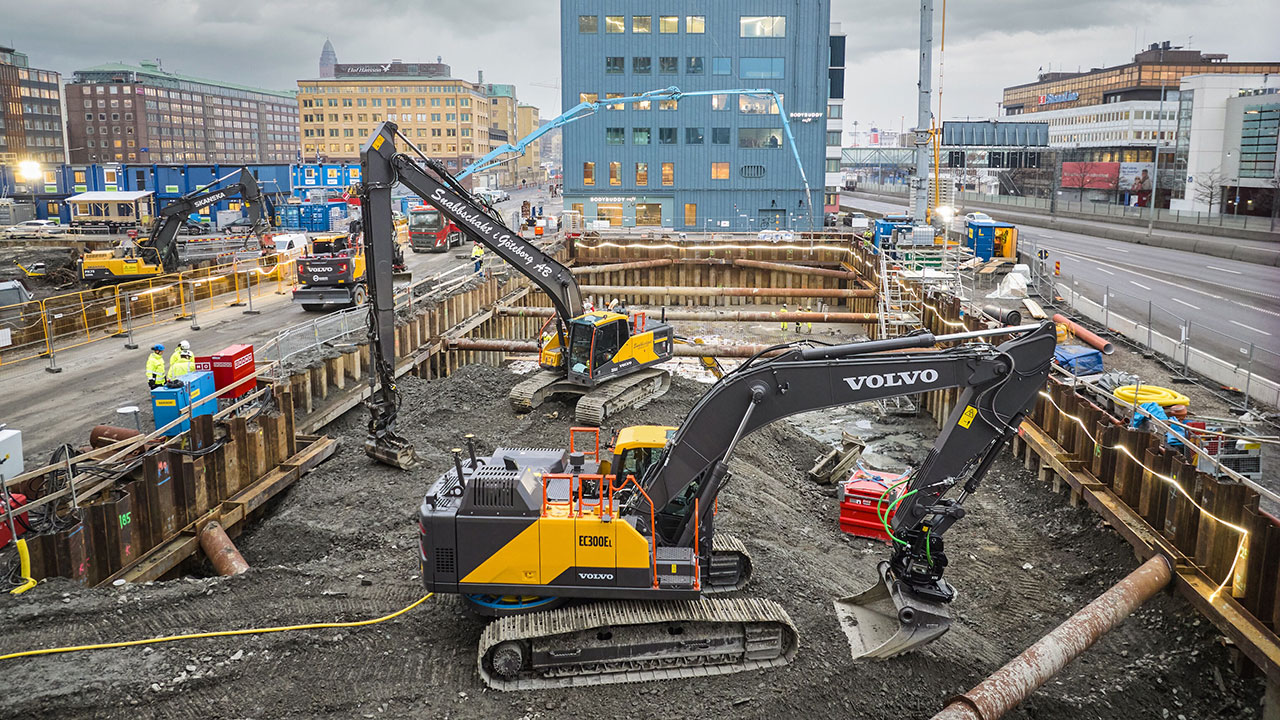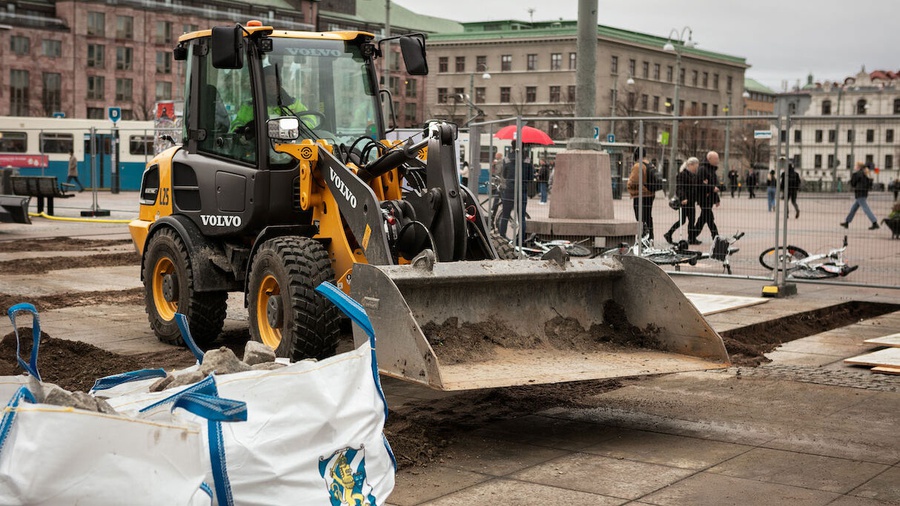In view of climate change, construction without fossil fuels is becoming increasingly important, however, construction machinery with diesel engines is still in use on most building sites today. The initiators of the Swedish field test are convinced that the electrification of the construction sector will make a significant contribution to reducing greenhouse gas emissions, noise pollution and other harmful emissions, thereby ensuring that it plays a central role in building a sustainable society.
The aim of the Electric Worksite project by Volvo Construction Equipment and partners in Gothenburg was to bring together several stakeholders from across the value chain to gain a better understanding of the opportunities and needs for the use of electrical equipment in urban applications. The project, the final results of which were recently presented, had a clear focus on the system perspective by testing electric machines, energy storage and charging infrastructure in different urban locations to clarify the different needs in interconnected technical and organisational systems.
The tests were carried out on real construction sites with electrically powered wheeled and crawler excavators, wheel loaders and load carriers weighing between 3.5 and 30 tonnes. Some of these were battery-powered, others were cable-connected. The study concluded that all tests were successful, with the most important findings being.
- Electric construction machines can perform the same work to the same standard as fossil-fueled variants in urban construction projects.
- Workers in and around electric machines experience several positive effects in the handling of machines and the working environment.
- Like most construction projects in general, the success of electrification is based on foresight, planning, and flexibility.
- New requirements for power supply are solved based on machine type and available electricity – such as electrical cabinets, mobile charging stations, cable-connected machines and potentially also energy storage units.
- End customers need to be made aware of new opportunities and challenges with electric machines, as well as of existing business conditions and contracting requirements towards contractors and subcontractors.
Volvo CE is one of the cooperation partners that has played a key role in the research project by project managing the tests and providing electric machines in different sizes and models as well as technical solutions for charging such as mobile energy storage and cable management systems.
Source: Volvo CE


